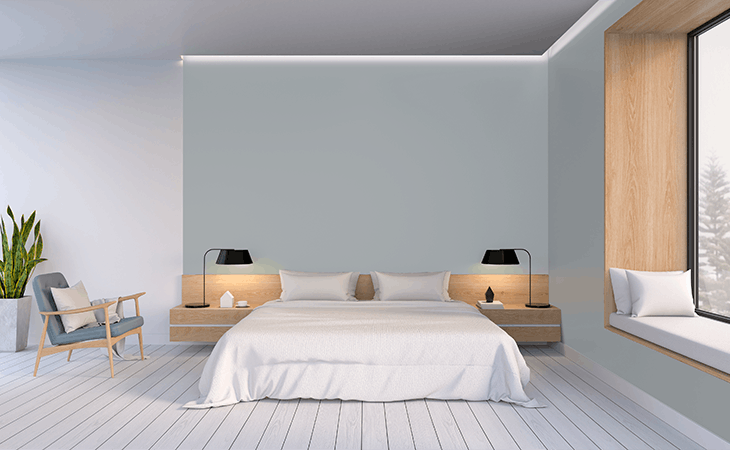Why Minimalism is the Secret to Accomplishing an Extra Organized and Stress-Free Life
Why Minimalism is the Secret to Accomplishing an Extra Organized and Stress-Free Life
Blog Article
Understanding Minimalism: Methods for Reducing Clutter and Enhancing Clearness in Everyday Living
Minimalism is progressively recognized as a practical technique to enhancing clearness and focus in today's chaotic globe. By systematically reviewing our properties and focusing on intentionality, we can create rooms that not only show our values but likewise advertise psychological wellness. Using methods such as the "Four-Box" method can promote an extra orderly environment, yet the real obstacle hinges on growing a minimalist way of thinking that sustains these initiatives. Discovering the subtleties of this approach may reveal unexpected insights right into how you can change your life. What might you discover when you embrace this deliberate simpleness?
Specifying Minimalism and Its Benefits
Defining minimalism entails recognizing it as a lifestyle option that stresses simplicity and intentionality in both physical properties and day-to-day routines. At its core, minimalism urges individuals to prioritize what truly matters, permitting a much more purposeful and focused existence. By stripping away the non-essential, minimalism invites people to involve deeply with their environments and experiences.
The benefits of embracing a minimal strategy are multifaceted. Firstly, it fosters mental clearness, as reducing clutter in one's environment can result in lowered interruptions and stress and anxiety. When bordered by less ownerships, people frequently report enhanced focus and enhanced efficiency. Minimalism advertises economic liberty; by prioritizing requirements over wants, people can make more educated investing in choices, leading to possible savings and decreased debt. Moreover, a minimalist way of life can produce psychological advantages, as it motivates people to grow gratefulness of what they have instead of yearning for much more.
Eventually, minimalism is not simply about material reduction yet involves an alternative change in viewpoint, promoting a life characterized by equilibrium, function, and fulfillment. Accepting this way of living can cause profound changes in how people engage and perceive with the world around them.
Assessing Your Present Mess
Clutter often shows up as a frustrating build-up of items that no longer serve a purpose, producing a barrier to attaining a minimalist way of life. Take note of specific groups of products, such as clothes, publications, or cookware, as this will aid you comprehend the scope of the mess.

Additionally, think about the frequency of usage for each item. If something has not offered a purpose in the previous year, it might be a candidate for elimination. This evaluation will not only clarify your partnership with your belongings however will additionally establish the foundation for efficient decluttering in the future. Ultimately, understanding your existing clutter is a critical action towards accepting minimalism and improving quality in your daily living.

Practical Decluttering Methods
Having actually examined your present clutter, the following action is to execute useful decluttering techniques that help with a more arranged living space. Minimalism. One effective approach is the "Four-Box" strategy, where you assign four boxes classified: keep, donate, trash, and relocate. This technique urges fast decision-making and guarantees products are classified properly
Another strategy is the "One in, One out" regulation, which states that for every brand-new product obtained, an existing item needs to be removed. This concept assists preserve equilibrium and stops accumulation with time. Furthermore, consider the "30-Day Minimalism Video Game," where you eliminate one product on the initial day, two on the second, and so forth, cumulatively promoting a feeling of achievement.
Limit on your own to a specific number of treasured items, enabling you to value their value without frustrating your room. By employing these techniques, you can create a much more reliable and serene living space, inevitably improving quality in your everyday life.
Creating Intentional Rooms
Developing deliberate spaces entails a thoughtful technique to exactly how we style and organize our environments, making sure each area serves a certain objective and mirrors our values. This practice is necessary in their website cultivating a sense of quality and function in our every day lives. By critically assessing the function of each area, we can eliminate disturbances and improve our general well-being.
To develop intentional areas, start by determining the primary activities that will take place in each location. For example, a home workplace ought to be created to promote productivity, incorporating aspects such as appropriate illumination, comfy furniture, and minimal disturbances. On the other hand, a relaxation area need to advertise peace, featuring calming colors and comfortable seating.
Furthermore, take into consideration the emotional influence of your surroundings (Minimalism). Incorporating personal items that reverberate with your worths, such as artwork or plants, can improve the link to your area. Routinely examine these environments to guarantee they remain to offer their desired function as your demands advance
Ultimately, producing willful areas is concerning making conscious options that straighten with your way of living, promoting consistency and performance in your living and workplace.
Preserving a Minimalist Attitude
Embracing a minimalist mindset calls for continuous reflection and intentionality in our actions and ideas. Establish apart time to examine your dedications, ownerships, and also electronic material, guaranteeing they line up with your core principles.
This change in point of view urges recognition for simpleness, enhancing general health. Integrating mindfulness techniques, such as meditation or journaling, can further enhance a minimalist frame of mind by advertising quality and reducing psychological clutter.
Furthermore, develop borders to secure your time and power. Find out to say no to non-essential responsibilities and interruptions that do not add to your check individual growth. Surround yourself with like-minded individuals who sustain your minimal journey, as shared worths can improve inspiration and accountability.
Final Thought
In final thought, embracing minimalism provides substantial benefits, including minimized mess and enhanced quality in day-to-day life. The principles of minimalism serve as useful tools useful reference for cultivating an environment that sustains personal development and health.

Additionally, think about the "30-Day Minimalism Video Game," where you remove one item on the very first day, 2 on the second, and so forth, cumulatively fostering a sense of accomplishment.
In verdict, accepting minimalism supplies significant advantages, including decreased clutter and improved clearness in everyday life.
Report this page